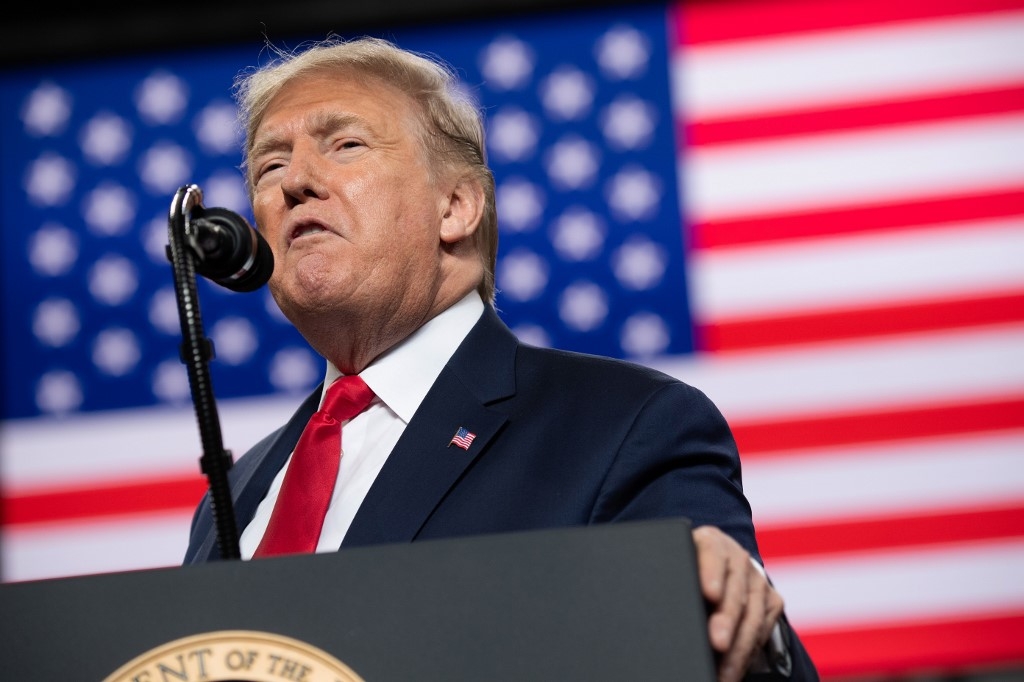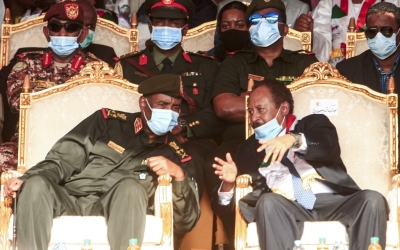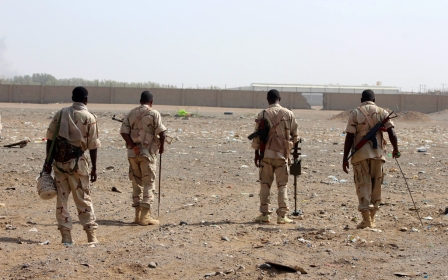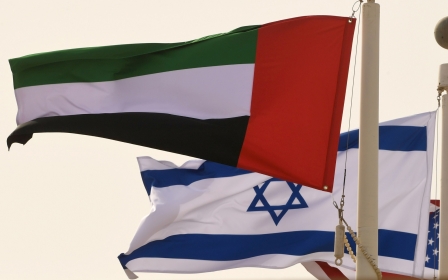Trump says US to remove Sudan from state sponsors of terrorism list

US President Donald Trump said on Monday that Washington will remove Sudan from its list of state sponsors of terrorism after the country's transitional government agreed to pay $335m to "US terror victims and families".
"New government of Sudan, which is making great progress, agreed to pay $335 MILLION to U.S. terror victims and families. Once deposited, I will lift Sudan from the State Sponsors of Terrorism list. At long last, JUSTICE for the American people and BIG step for Sudan!" Trump, who is seeking re-election next month, said in a Twitter post.
Trump's announcement brings an end to formal discussions which have taken place since 2018 over the payment. The past few months saw intensified negotiations between both sides.
Khartoum's removal from Washington's State Sponsor of Terrorism (SST) list is a major step in Sudan's efforts to reintegrate into the international community after last year's uprising toppled longtime leader Omar al-Bashir.
New MEE newsletter: Jerusalem Dispatch
Sign up to get the latest insights and analysis on Israel-Palestine, alongside Turkey Unpacked and other MEE newsletters
The monetary compensation would go to the victims of the 1998 US embassy bombings in East Africa and the attack on the USS Cole, a guided-missile destroyer, in 2000 off the coast of Yemen.
The attacks in Kenya and Tanzania killed more than 220 people, including US citizens and locals who worked at the embassies. In 2000, two suicide bombers targeted the USS Cole, killing 17 service members.
All three attacks were claimed by al-Qaeda. In subsequent years, Khartoum faced lawsuits in the US accusing the Sudanese government of harbouring the al-Qaeda operatives who planned and carried out the bombings.
The remaining countries on the US's terrorism list are Iran, North Korea, and Syria.
Sudan was initially placed on the US list in the early 1990s, when now-ousted President Omar al-Bashir hosted al-Qaeda leader Osama bin Laden. The country continues to suffer under heavy economic sanctions.
Step toward normalisation with Israel
Officials told the New York Times that Sudan's removal from the terror list could pave the way for normalisation with Israel.
Israel signed US-brokered diplomatic agreements with the United Arab Emirates and Bahrain last month, breaking longstanding consensus among Arab states that normalisation with Israel be contingent on a resolution to the Israeli occupation and the establishment of an independent Palestinian state.
Both Israeli and US government figures have repeatedly hinted since August that other Arab countries would follow in the two Gulf states' footsteps.
Although a number of countries are known to have had unofficial relations with Israel for years, they have yet to follow suit and formalise those ties.
Several polls have shown that a majority of citizens in the region remain opposed to normalisation with Israel.
In February, Israeli Prime Minister Benjamin Netanyahu met in secret with Abdel Fattah al-Burhan, the chairman of Sudan's ruling Sovereignty Council, in Uganda, and the two leaders reportedly agreed to start the process of normalising ties.
In August, the UAE arranged an unannounced meeting between Mohamed Hamdan Dagalo (also known as Hemeti), vice president of the Sovereignty Council and commander of the Rapid Support Forces, and the head of the Israeli Mossad, Yossi Cohen, to discuss prospects for normalisation.
Sudanese Prime Minister Abdalla Hamdok said that the terrorism designation and normalisation with Israel should be viewed as two separate tracks.
Israel and Sudan have never enjoyed official bilateral relations, although Israel does enjoy close relations with South Sudan, which split from Sudan in 2011.
Middle East Eye delivers independent and unrivalled coverage and analysis of the Middle East, North Africa and beyond. To learn more about republishing this content and the associated fees, please fill out this form. More about MEE can be found here.





